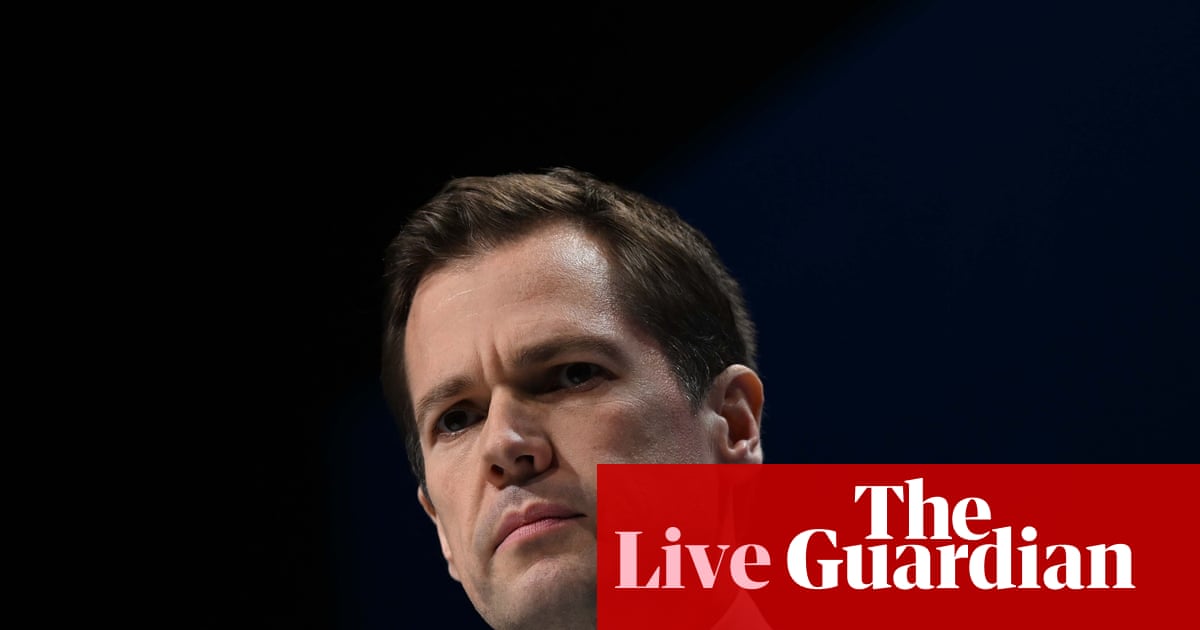PROTECT YOUR DNA WITH QUANTUM TECHNOLOGY
Orgo-Life the new way to the future Advertising by AdpathwayThe “worst place in the world” to explore for oil is open for business. Again. Swathes of the Congo basin rainforest, home to okapis, lowland gorillas, bonobos and other rare wildlife, are being auctioned off by the Democratic Republic of the Congo (DRC) for the second time in three years.
This round of licensing includes 52 blocks across 124m hectares (306m acres) of swamps and rainforest in some of the best-preserved tropical ecosystems left on Earth. Opening it up for fossil fuel extraction could be a disaster for nature and the climate.
We have been here before. In July 2022, the DRC government announced an auction round that included Virunga national park and the Cuvette Centrale tropical peatlands in the north-west of the country, which store the equivalent of three years of global emissions from fossil fuels. It came just months after a $500m (£380m) deal at Cop26 in Glasgow to better protect the DRC’s portion of the world’s second-largest tropical rainforest. In the end, the auction petered out despite defiant claims from the country’s then oil and gas minister that celebrity campaigners including Leonardo DiCaprio and Ben Affleck would not stand in their way. The DRC government announced the end of the auction last October, citing lack of competition and irregular offers.

But the world has changed in the proceeding months. In 2022, the US was a leading diplomatic voice behind the scenes, urging the DRC government to cancel the auction. Dozens of environmental NGOs spoke out to condemn the decision. One New York investment firm even tried to buy the oil blocks and turn them into an enormous carbon offsetting project.
Today, in a world shaped by Donald Trump’s White House and with the growing risks of speaking out about the environment, the reaction to the latest auction has been comparably meek.
“The world’s worst place to prospect for oil is up for auction, again,” said Prof Simon Lewis from University College London, who led the team that first mapped the central Congo peatlands, speaking to my colleague Phoebe Weston last month. “No credible company would bid for oil in the DRC’s forests and peatlands, as there is probably not enough oil to be commercially viable, and it will be expensive oil in financial, social and environmental costs.”
Those in favour of the oil exploration say the development does not need to come with a major environmental cost and could provide a huge economic boost for one of the poorest nations on Earth. They point to Gabon, also a Congo basin rainforest country, as an oil producer that maintains one of the highest levels of forest cover in the world.
But there is confusion about priorities of the DRC government. Rich in critical minerals, the DRC has been the focus of intense diplomatic competition between China and the US in recent years, positioning itself as a “solutions country” for the climate crisis and the energy transition. Earlier this year, it announced one of the world’s largest conservation projects – the flagship Kivu-Kinshasa Green Corridor conservation initiative. But more than two-thirds of the corridor overlaps with the planned oil blocks.
“Imagine: 39 million Congolese people … and 64% of our forests could be directly affected by the awarding of these oil blocks,” said Pascal Mirindi, campaign coordinator for Notre Terre Sans Pétrole. “And all this while the government is promoting the Kivu-Kinshasa ecological corridor. Where is the logic? Where is the coherence? We are reminding our leaders that the Congolese people are the primary sovereign. We will not remain silent while certain people organise themselves to sell off our future.”
Often overshadowed by the Amazon and its Indonesian counterparts, the importance of the Congo basin rainforest is unknown by many around the world. But it is hard to overstate just how crucial it is for millions of people, helping to regulate rainfall as far away as Egypt. Its demise would be a disaster.
after newsletter promotion
Read more:
-
DRC to auction oil and gas permits in endangered gorilla habitat
-
The rangers turning the DRC’s ‘triangle of death’ back into a thriving wildlife reserve
This is an edited version of Down to Earth, or climate crisis newsletter. To sign up to receive the full version in your inbox every Thursday, click here


 1 month ago
46
1 month ago
46



















 English (US) ·
English (US) ·  French (CA) ·
French (CA) ·